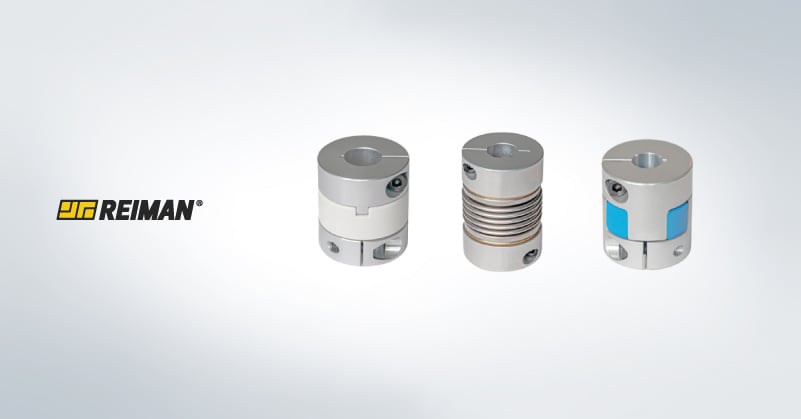What are couplings and what do they do?

A coupling is a mechanical component that connects 2 shafts which are intended to rotate in order to transmit power. Shaft couplings introduce some flexibility into mechanical transmission by providing tolerance to shaft misalignment.
As a result, this coupling flexibility can reduce uneven bearing wear, equipment vibration and other mechanical problems due to misalignment. Couplings in industry are interpreted as "a part that connects two shafts together", "shaft couplings" or "joint". Power can be transmitted through couplings even between shafts of different diameters.
Main functions of couplings:
- transmission of power;
- Absorption of misalignment;
- Absorption of vibrations for component protection;
- Avoid heat transfer to the driven side.
1 Power Transmission
The main reason for using a coupling is to connect the drive shaft to the driven shaft.
It is difficult to manufacture a connected machine with a one piece shaft instead of using a coupling. It creates problems in terms of cost and precision, but also transport and assembly are very difficult so it needs more labour, as well as longer drive shafts that are more expensive and difficult to work with.
Moreover, in the case of the one-piece shaft, it must be replaced in its entirety if the drive side or the driven side is broken.
2 Absorption of misalignment
It takes a considerable time to align the driven and the driven shaft with the driven shaft with high precision.
If the shafts of two shafts are misaligned, extra force is repeatedly applied to the rotating parts as they rotate, which causes vibration and noise, and often leads to fatigue cracks, which may cause the shafts to break
Also, although the same parts are used to make units, there can be errors such as machining accuracy and it is very difficult to assemble each unit accurately because the dimensions are different from one to another.
Therefore, a coupling must be used to absorb such assembly errors.
The coupling has the role to transmit power dynamically and accurately, even if there is a misalignment (eccentricity / declination angle, axial displacement etc.) between the two shafts.
3 Absorption of vibrations for component protection
Vibration and shock can be transferred to the surrounding parts when the machine is operated.
For example, if the vibration of a motor on the drive side (motor) is transmitted to a ball screw, the machine deviates from the prescribed position and good machine performance is impossible.
Furthermore, if a machine without a coupling receives an impact from the outside, the impact can be transmitted directly to the motor and can cause damage to it.
A coupling is the solution to this problem. It absorbs vibration to move the driven side with high precision, and/or shock to prevent the motors from being damaged.
4 Avoid heat transfer to the driven side.
The constant use of the motor generates a lot of heat, which is often transferred to the driven side, affecting, for example, ball screws or other high-precision elements. This causes them to expand and change their length.
As a result, the positioning accuracy is affected, and the expected precision of the machine will not be achieved.
However, by using a coupling, it is possible to avoid heat transfer from the motor, so that the parts are not deformed or displaced from their correct position, because the intermediate elements are usually constructed of weak heat-conducting materials.
As explained so far, the need to use couplings varies depending on the application and the situation.
Couplings can provide multiple performances, such as absorbing assembly errors (flexibility), high positioning accuracy (rigidity), contributing to higher precision and longer service life, absorbing vibrations and blocking heat transfer.
Thus, it is necessary to understand that there are several types of couplings and each has unique functions and applications.
For more information, please contact Reiman’s specialized team.

